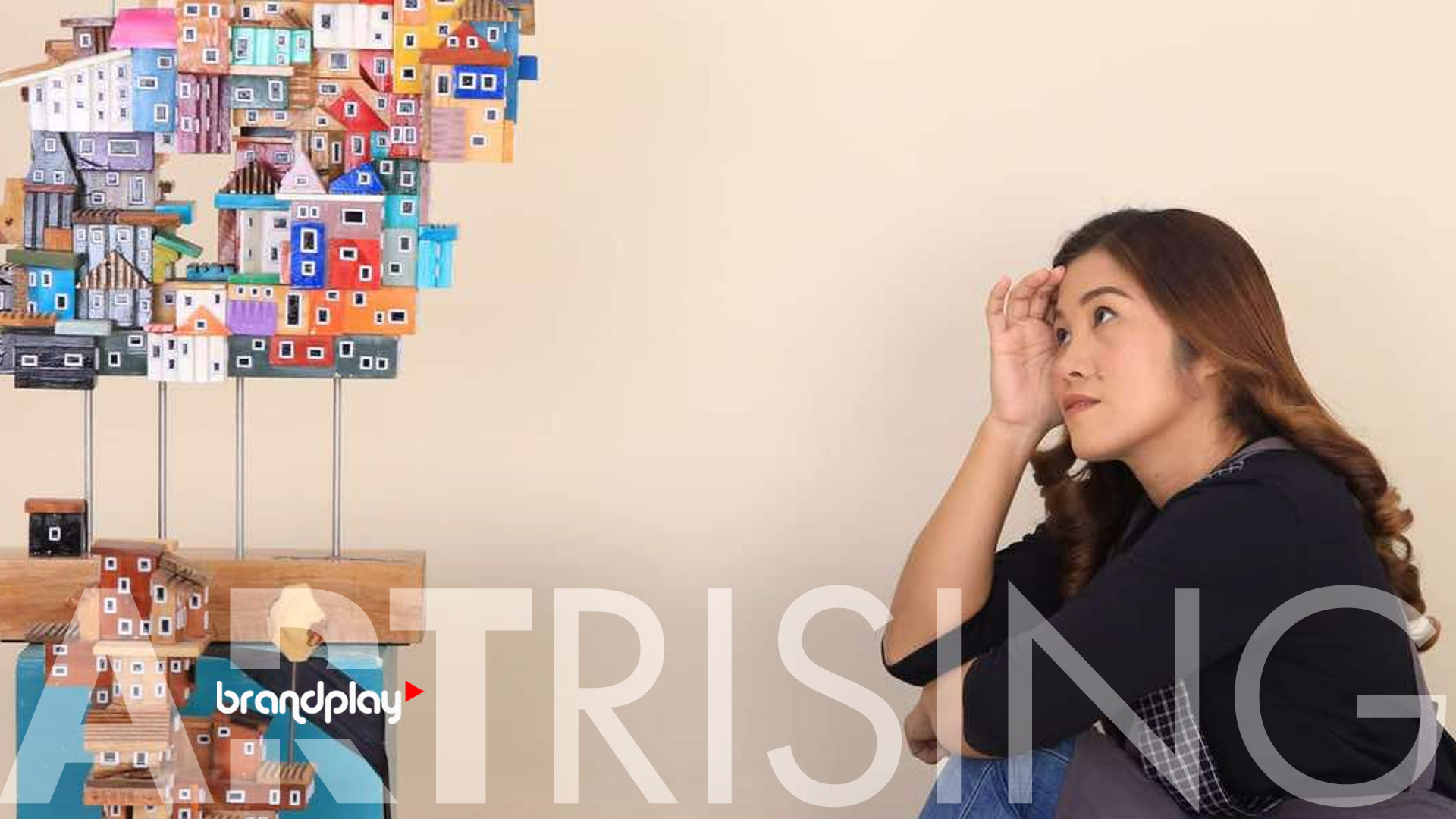Paper dolls, bookmarks, and cards were the crafts that Filipino sculptor Ayen Quias learned to make and market as a ten-year-old girl. Using the magazines and newspapers they had at home, she created something unique with the beautiful work of her hands.
Many years later, the same hands that crafted toys in her girlhood and sculpted her “little town” as an adult are now carving a path for Filipino artists to be recognized locally and beyond. Leading the Contemporary Art Movement of the Philippines, Quias invites both artists and viewers to look forward to the future of Philippine art resting in her palm.
“My art evolved drastically over time but it is always a work in progress. I am always a work in progress. I have so much to learn but I let God lead my way.”

Quias, born in Tarlac, is known for her magical and colorful scrap wood sculptures of small houses built close together. Arranged in rows or stacked upon one another, they represent her close-knit relationship with her loved ones, mirroring the image of a typical Filipino family.
Renowned visual artists such as Pablo Picasso, Vincent van Gogh, and Gustav Klimt, whose lives and works have been influential, helped guide Quias in discovering her artistic style. She also admires the works of Filipino cartoonist and illustrator Mauro ‘Malang’ Santos and the Father of Philippine Glass Sculpture Ramon Orlina. However, it was her uncle, Amante Quias, who had the most significant impact on her life from a young age.
Quias, a seasonal artist in his time, painted women in the marketplace. It was at his ancestral home in Fuerte, Caoayan, Ilocos Sur, where the young Quias first encountered his paintings. These works were the first she ever saw, sparking her imagination and bringing them to life in her young mind.
It’s no wonder her hands spent a long time creating her “Cheeks on Fleek” collection of figurative and abstract paintings before venturing into wood sculpture. More than just a depiction of women, the collection is a reflection of her own identity as a woman, mother, and lover.
“My “Cheeks on Fleek” series is a self-portrait while “Ayen’s Little Town” is a portrait of everyone I love—it represents my family,” she says.

Quias co-founded the Contemporary Art Movement in the Philippines in 2016 with co-artist Noel Nicolas. It is a labor of both their hope and vision to bring Filipino talents to the global spotlight, paving the way for them to gain international recognition and represent the nation’s artistry.
They have been outside Asia a couple of times to attend shows and exhibits including at the Carrousel du Louvre, Kwadro, and La Mode en Moi in Paris, France, last October. Their artworks are also displayed in the “A Holiday Showcase” Art Exhibition at the Grand Westside Hotel in Paranaque until January 6, 2025.
“I can see that 10 to 15 years from now, Philippine art will be all over the world and there will be more support we can get from the government or private sectors. Many Filipino artists, not just me and CAMP, are [making] a joint effort to break barriers because art should [have] no boundaries.”

Recently, the CAMP founders were awarded the second prize in the International Art Exhibition of Visual Arts in Venice in October, further proving their significance and influence in the modern Philippine art scene.





